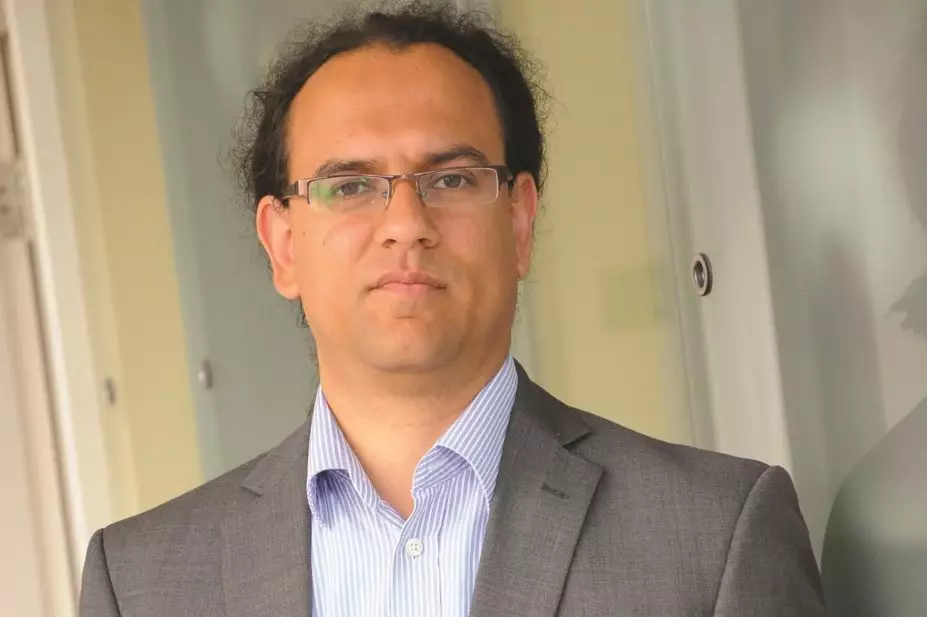
Royal Pharmaceutical Society
What do the government’s proposals say?
For the RPS and the [pharmacy] profession, the most important part of the proposals is that they will shape legislation that will end the automatic criminalisation of pharmacists who make dispensing errors.
Those proposals have been a long time coming, and I think for pharmacists this has been a heavy weight [on their minds]. If I am going to report a genuine mistake, then I want to make sure that I do so knowing that the profession, the law, the regulator, patients and the public all know I’m doing that for the best intention. The intention is to make sure that information is being shared, that learning can take place. There might be an issue that could be replicated elsewhere; others can learn about that, and do something to stop it happening again.
The barrier of reporting errors is something that will defeat attempts to try to improve patient safety. Unless you have that culture of reporting, sharing information and learning from mistakes, then it’s really difficult to improve learning from incidents.
Do you think, if legislation were to change, one would see an immediate difference in terms of the sort of errors that would then be wholly admitted and reported?
[The legislation] is a really clear signal from government to the profession that they have listened and understood that this barrier to reporting, of automatic criminalisation whenever a dispensing error has been made, has set a culture that meant people were fearful of reporting.
I hope [this legislation] will change the culture and set an opportunity for pharmacists to actually report errors, with the full knowledge that they’re going to be used in the right way — to improve learning, and not through the courts to punish pharmacists.
If we look at other high-risk industries — like aviation or the nuclear industry — that’s the way they’ve chosen their culture: to make reporting the most important thing.
Obviously there’s a lot more to do to make sure pharmacists feel empowered, that it works all the way through the system, not only at government legislation level but also at regulatory level and at operational levels within businesses or hospitals.
How does the RPS plan to inform members about the proposals in the weeks and months ahead?
We’ve made a commitment to share a policy briefing with all our members within the next two weeks, and that is to answer the question: what do the legislative and technical changes actually mean in terms of practical changes for pharmacists?
We’re then holding events for pharmacists — they are for members and non-members, open to all the profession. We’re also working with the Association of Pharmacy Technicians UK (APTUK) to make sure technicians have an opportunity to ask questions as well.
The events are ‘ask the experts’ events — an opportunity to get your question over to the Department of Health experts, [RPS President] Ash Soni, who has represented [pharmacy] on the rebalancing board, and APTUK.
We hope those events help us understand the kind of questions pharmacists are asking, so that we can provide answers and shape our thinking in how we respond to the consultation as the RPS.
Will members have the opportunity to contribute to the RPS response to this consultation?
Yes — we’ve got to think through how we do that. Not everyone will be able to attend a face-to-face event, so we’ve got to find many and various ways of making sure members can give us their views. If people have immediate reactions that they want to give us, the RPS support team is a good place to start.
We’ll also be doing some work after the event, thinking about how we can gather together that information and present it to the profession.
Is there anything in the consultation that the RPS is not happy with?
No. I think the beauty of the RPS as an institution is that we’ve had an opportunity, through the rebalancing board, to shape the thinking that informs the consultation.
We have to recognise that we’re part of the electoral cycle, which means there could have been a significant delay if the proposals hadn’t been published now, so it’s great that they have.
We share the frustration of hospital pharmacists that there isn’t exactly the same proposal within this consultation about that [setting], but we have made it very clear that that isn’t going to be left by the wayside, that it is included in the future.
Does the RPS expect this proposal to become law? Are you expecting any major opposition?
I think the government has set an agenda with an intention to legislate. Obviously there’s a general election in the middle of this consultation, so it’s going to be really important that pharmacy provides a united voice alongside engagement with patients and the public and other health professionals so that, whatever’s presented to an incoming government, it is a consensus.

